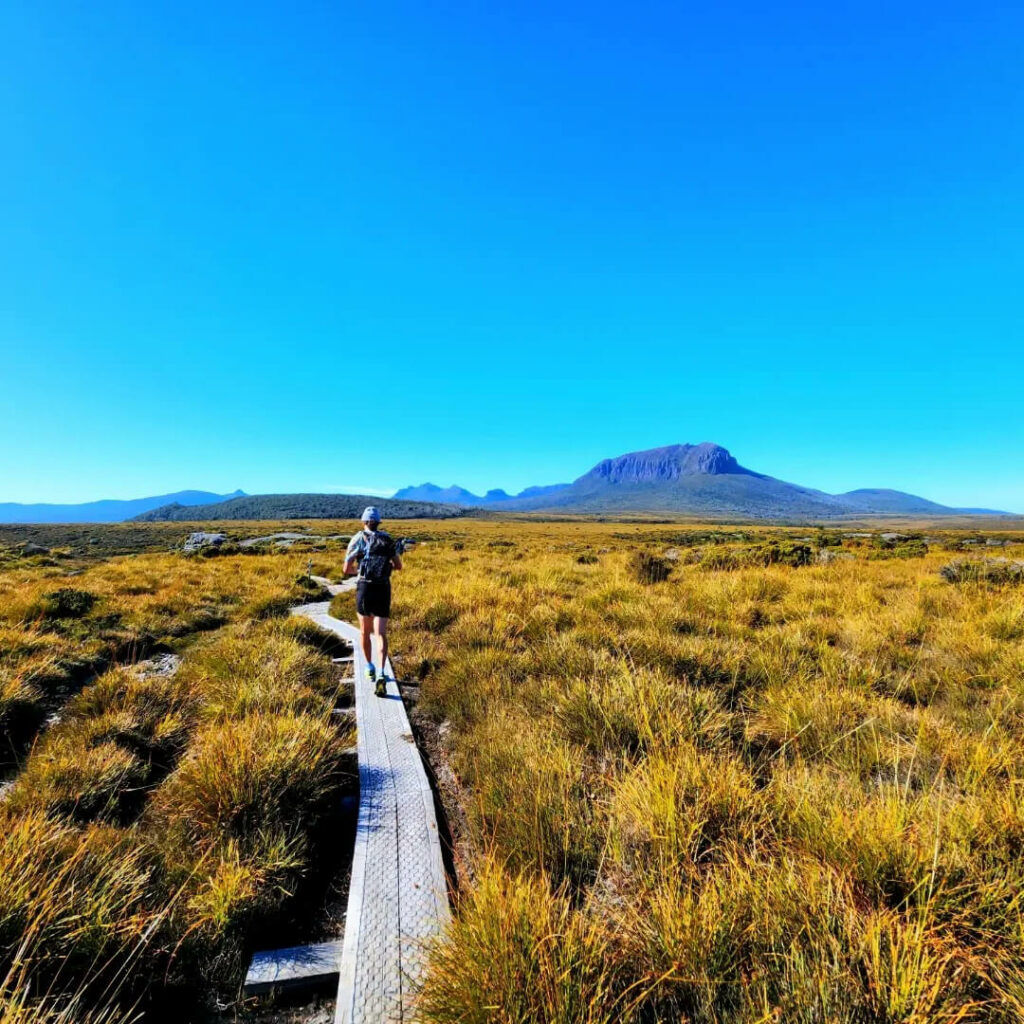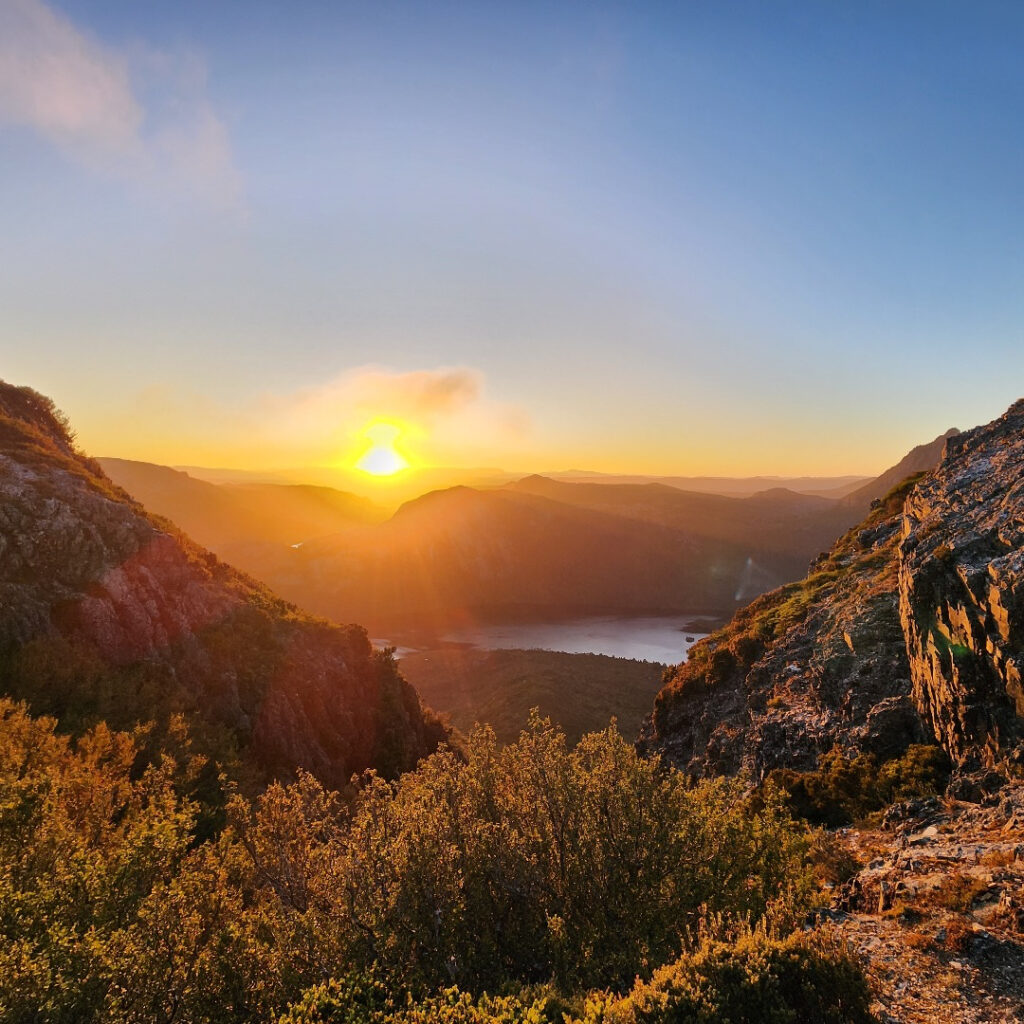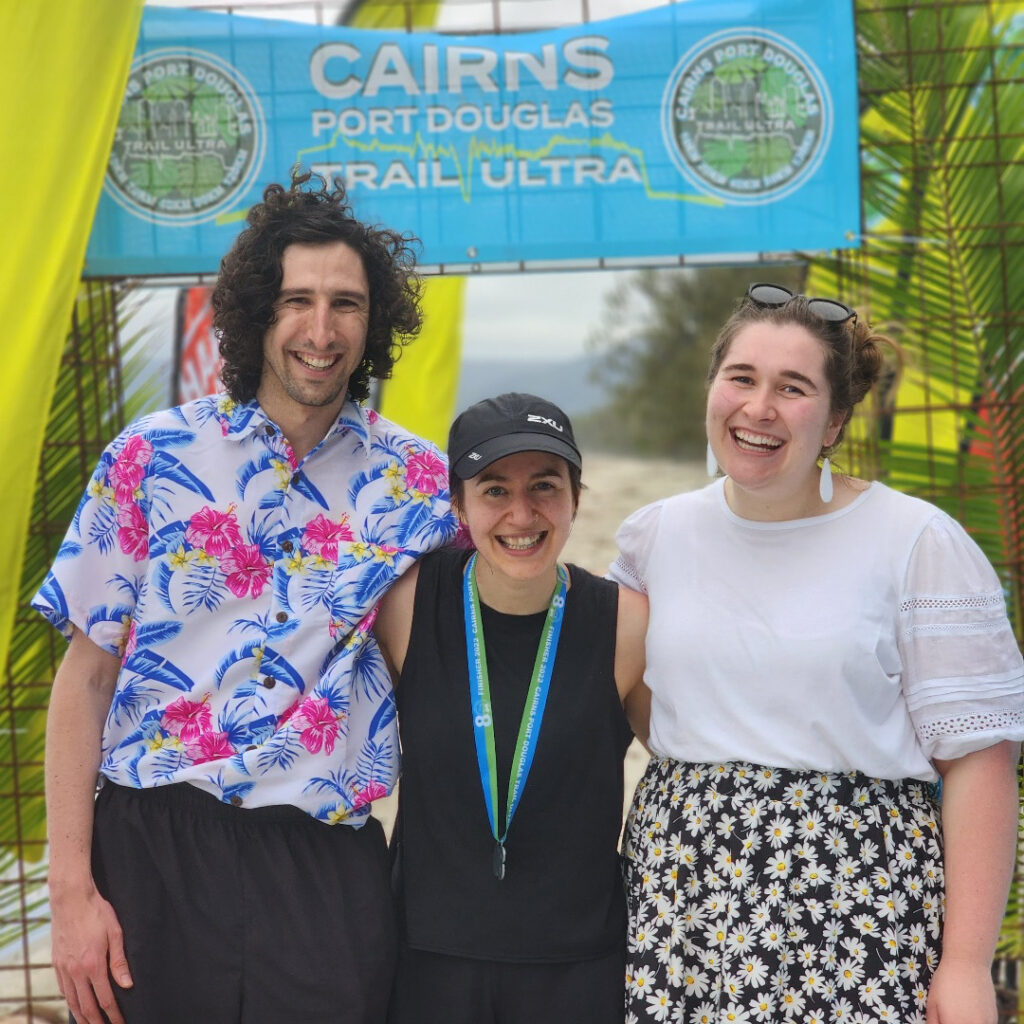“I’m sorry Angus, but you’re going to have to give up the running training. You just don’t have the body for it.”
Talk about a hammer blow. My sports medicine doctor doesn’t mince his words at the best of times, but this was brutal. I had been hoping for some positive news – and this was certainly not that.
Over the preceding months, we’d done our best to figure out why the last two years had been a string of unending injuries – a mysterious foot complaint, a tibial stress fracture, multiple bursitises and tendinopathies, and unexplained knee pain. It just wasn’t adding up. My training habits had never been loosey goosey. In fact, each injury led to more and more research. Training theory, strength training, running technique, nutrition, how to return from injury, you name it, I’d consumed it – books, articles and podcasts on it.
Despite that, the injuries kept piling up. I’d feel better, and then suddenly I really wouldn’t.
So we did an MRI, blood tests, a bone scan. All normal. The possible explanations for my injuries were disappearing quicker than Christmas Day desserts at my in-laws. With no clear answer, my sports doctor came back to an idea that he’d tentatively suggested during our first consult, one that had been stuck in mind ever since…my sub-par biomechanics and iffy genetics were putting a serious ceiling on my ability to run much, let alone run a lot.
As hard as it was to hear, it rang true. Biomechanically, my running form is a thing to behold. An ostrich on roller-skates probably moves in a straight line better than I do. Remedial work on my running gait had made minimal difference, despite my relentless attempts to make changes. After all, you can’t alter the shape of your bones. And my family? We’ll, we’re just not the athletic type. My mum’s side of the family seems to be particularly fragile, with a terrible history of joint, bone and arthritic problems. I was hardly working with an Olympic gene pool.
But even if it made sense, it didn’t make it any easier to digest. We all have reasons for why we are drawn to running — each like a hue or color in a beautiful tapestry. For me, it starts with the feel of it. Enjoying moving my body doesn’t quite encapsulate it. Running is distinct— it’s simple yet all-encompassing, purposeful yet relaxing. Running brings me a unique and tranquil joy that cannot be replicated by other forms of exercise.

Running also plays an integral role in my life rhythm. Life is hectic, and there are always a lot of stressors and pressures to contend with. The physical, relaxing nature of running is the necessary balancer, the necessary contrast to my job as a relationship counselor, as well as my other responsibilities and bulging calendar. Running helps me to do life sustainably.
A few more hues of importance: I’m a people person, and running gives me the chance to connect with others. It gives me the space to chat, share, laugh and dream. And last but not least, running allows me to be absorbed in the beauty and wonder of nature. The city I live in, Hobart, is overlooked by the beautiful mountain kunanyi, and I never tire of exploring and enjoying the stunning trails and views it offers.
As I reflected on running’s place in my life, I felt overwhelmed with fear and sadness. The prospect of losing running was so massive to me that I pushed it all down and refused to think about it. Looking back, I was scared of how I would respond if I truly grasped all that I would be losing. Better not to find out.
But even as I tried to run away from how petrified I was (see what I did there), I just couldn’t escape the feeling that I was missing something.
I caught up with a friend about a week after the appointment. She’s a fellow runner, and not only has she had her own share of injuries, but she also suffers from cystic fibrosis. She knows, even more than I do, what it’s like to run with a low ceiling.
We talked about how I was going, why running mattered so much to me. At some point the focus shifted to her, and her journey. She told me about times in the past when she had gone against doctor’s orders and ran. About times when she had spent more time coughing and walking than running, but loved running so much that she did it anyway. She told me about the immense gratitude she has for any running she can do. And she shared what a privilege it was for her to be in nature — even if it meant hiking rather than running.
I came away from that conversation marveling at my friend’s courage, resilience, joy and gratitude. The more I thought about it, the more the running itself faded into the background.

A few days later I read David Roche’s reflective piece on Kipchoge’s incredible Berlin Marathon performance. He concluded by saying that even though Kipchoge’s times are unfathomably awesome, he’s really just like us. He gets that high and satisfaction when he runs near his best. He has to face his fears. He needs to show grit and determination to push his limits. Not only is that what connects us all; ultimately, this is what really matters.
This is what really matters.
Sometimes you may think something is important and meaningful, without really understanding how important or meaningful it is — or how much it could and should be to you. It can range from relatively simple things, like checking the oil in your car or going to the dentist (cannot remember the last time I did either of those things), to the bigger parts of our lives; family, work, or having a roof over our heads. It’s not that we’re totally ungrateful, or that we’re utterly oblivious to the good things we possess or experience — but sometimes…sometimes we just don’t quite get it.
And as the cogs turned in my brain, I realised that I’d made this classic mistake about the things that really matter in trail running.
Don’t get me wrong, years of injuries were not without growth. I’m far more grateful for the gift of being able to move, let alone run. But it appeared that these things weren’t center stage to my experience of trail running. They weren’t the things I most valued, nor were they things I really looked for in myself or others. They were jostling with other things, things like being able to run enough, getting enough vert in a week, and being able to recover well. In other words, the everyday details, the nuts and bolts of training as a trail runner.
But as I sat back and surveyed the scene, I realized that it is who we are and what we bring to the trail running experience that is most important. Our ability to be courageous. To do what’s right, even when it’s hard. To demonstrate humility and joy. To be vulnerable in our weaknesses, and to extend care to others in theirs. To celebrate the successes of others as our own. To overcome our fears, uncertainties and failures. And to have unbridled gratitude for any and every run we experience. This is what it means to be a trail runner. These are the things to treasure, to celebrate, and at which we are to marvel.
When this is our perspective, we realize that there are some truly remarkable runners amongst us. The mother of three who somehow manages to squeeze in a few short trail runs each week in the pre-dawn dark. The young man with severe depression, for whom it’s a minor miracle that he can even make it out the front door for a 10k. Or the person who can’t help but encourage others’ running with infectious enthusiasm — even as their own running perpetually lags due to a chronic ankle problem. You don’t need to run Western States in 24 hours to be a giant in the trail running scene.
And see that’s the thing. Not only are these qualities most important to trail running; they are what connects us most deeply as trail runners too. Few of us will be able to riff on what it’s like to complete UTMB in a little over a day (or less!), but we all know what it’s like to show determination, to confront our insecurities, or to express gratitude for our morning run. You want to really know someone, to really connect with them and their running, or to really grow the trail running community to which you belong? Focus on what really matters in trail running.
I’m quietly confident that a focus on these things is just as important for elite trail runners. In any sport, it is the professional athletes that typically set the cultural tone for the broader community of their chosen sport. They are the ones that can have the greatest influence on attitudes, values and perspectives. Whether they like it or not, they are role models, and their influence filters down.
However, there’s a catch. Those who are professionals are arguably the ones most at risk of neglecting the things that should be most eagerly promoted and nurtured within a sporting culture. Understandably, the pressures and demands that come along with professional sport can mean that showing kindness, demonstrating gratitude or extending encouragement gets pushed to the periphery.
But what’s the point of being able to run up a mountain if you can’t stay grounded in what really matters?
If trail running is to remain the incredible sport it is, then we need to continually acknowledge, prioritise and celebrate the characteristics and backstories we bring to the trails. Tell your friend how inspired you are by the discipline they show in their training. Make gratitude a mainstay of your local trail community. And take the time to recognise your ownincredible story, and commit to making it even more beautiful and wonderful.
There is a tragic irony to all this for me; I’ve honed in on what really matters in trail running just as I face the possibility of having to stop. If and when the day comes it will take a long time to grieve and recover. As Yoda would say, “A devastating day, that would be.”
If that’s where things end up, then that’s okay. Courage, gratitude, humility, determination — I can demonstrate these in so many other ways. Even if I can’t run, I’ll always be a trail runner at heart.
And every now and again I’ll tune in to a podcast, read a book on a great trail runner or check the local trail group’s social media page. And as I do, I’ll pay close attention to what’s emphasised, to what people choose to talk about, and to what they celebrate.
And I’ll smile every time I come across someone who knows what it really means to be a trail runner.

